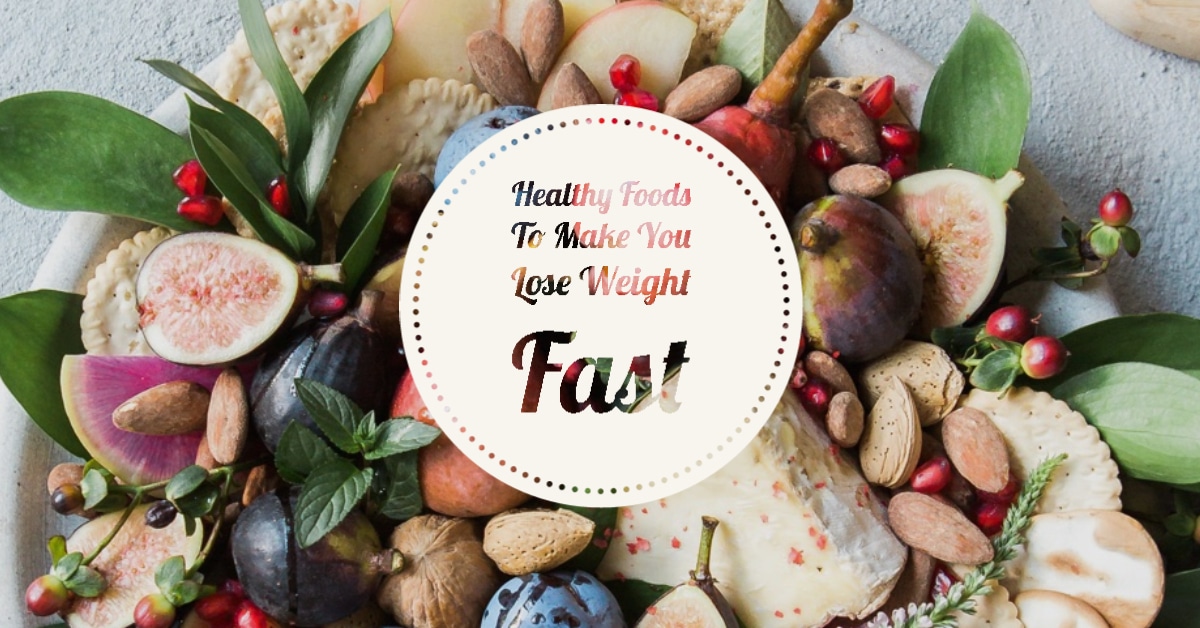
4 Nutritional Facts You Must Know To Lose Weight
When it comes to losing weight, there are a number of tools and techniques out there, such as fad diets, raw food, Keto, CICO calories in, calories out diets, to name a few as well as detox teas and fat-burning workouts, which promise instant results. These methods lure countless people in with false claims only to fail in a few weeks, leaving the users wondering why they weren’t able to lose weight even after trying so hard.
The problem is that most of these ’miraculous’ techniques have no scientific backing and they just channel your efforts in the wrong direction. The fact remains that you do not need to starve yourself, overuse fat-burning beverages or indulge in intense workouts to lose weight.
Rather, weight loss is about adopting a well-balanced diet, a healthy lifestyle, staying physically active and capitalizing on foods that facilitate it. This means the entire process needs to be easy, enjoyable and sustainable in the long run.
Table of Contents
Here are 4 nutritional facts that you need to know if you want to lose weight in a healthy manner:
All calories are not the same
While attempting to lose weight, people usually think it is best to cut down their total calorie consumption. Such an endeavor is primarily triggered by the widespread fallacy that you need to eat less in order to drop pounds. This is not only incorrect but it can have adverse effects on your overall health and well-being as it deprives your body of essential nutrients.
What needs to be understood is that even though all foods are measured by the number of calories they contain, they are all processed via different metabolic pathways in your body. It is for this reason that various food groups have vastly different effects on hunger, hormones and your weight.
Certain foods such as butter and cheese that are packed with calories facilitate the buildup of fat reserves, while at the same time lean meats that are also high in calorie count actually work to boost metabolism and therefore lead to the burning of fat.
So, in order to drop pounds, it is crucial that you increase your consumption of calories from protein-rich sources such as lean meats and eggs or from whole foods such as fruits and vegetables. The reason for this is that lean meats give you ample energy and at the same time curb appetite and cravings, boost metabolism and optimize the function of hormones that regulate body weight.
Similarly, fruits provide calories that are much more filling than refined foods and consequently facilitate weight loss by diminishing your overall food intake.
Low-fat and fat-free labels do not imply low calories
Low-fat and fat-free foods are considered as safe havens for those aspiring to lose weight. These products make hyperbolic claims of possessing excellent taste as well as essential nutrients and of being completely devoid of fat.
While these products do have low-fat content, they are still much more calorie-dense than their full-fat equivalents. This is because they compensate for the lack of taste, caused by the removal of fat, by adding excessive sugar, starch, flour or salt. Resultantly, the calorie count increases making the end product worse than the unprocessed full-fat version.
Moreover, these hidden sugars catapult your overall sugar intake to a vastly unhealthy amount and hence play a major role in contributing to obesity and ailments like diabetes, cancer, dental cavities, and heart diseases.
Here are some tips on how to read a nutritional table to help you pick foods that are in line with your dietary requirements:
- Start by reviewing the total number of calories to see if they fit in your daily calorie intake.
- Go for products with low amounts of fat, sodium, and cholesterol.
- Try to opt for foods that have high levels of proteins, minerals, fiber, and vitamins.
Additionally, along with healthy and balanced food intake, you should also use dietary supplements to give yourself an additional boost.
All fats are not unhealthy
Since long, we are discouraged from consuming fat in any form because it’s believed to be directly associated with a buildup of fat reserves and thus deemed unhealthy. In reality, certain types of fats are essential for your body as they are one of the prime sources of energy and help in digesting vitamins and minerals.
Therefore, it is important to be able to differentiate between good and bad fats and then use this knowledge to shed pounds in a healthy and sustainable manner.
Healthy fats include monounsaturated and polyunsaturated fats that help build the exterior of cells and sheath around nerves, prevent blood clotting, inflammation and improve muscle movement. They even lead to weight loss by boosting metabolism and lowering triglycerides and bad cholesterol levels.
Polyunsaturated fats, in particular, must be consumed from external sources because your body cannot produce them on its own. These fats are crucial as they comprise omega-3 and omega-6 fatty acids, both of which provide great health benefits for the body.
Omega-3 fatty acids protect against heart diseases, reduces blood pressure, raises HDL (good cholesterol) level and prevents lethal heart rhythms from forming. Omega-6 fatty acids have also been found to prevent heart ailments. These polyunsaturated fats can be found in fish like mackerel, salmon and sardines, flaxseeds, walnuts, and vegetable oils.
The category of fats that you need to avoid in excess includes saturated fats that have been found to increase LDL levels and cause blockages in arteries leading to heart attacks and strokes. These fats are found in red meat, whole milk and dairy products, coconut oil, and cheese as well as commercially prepared baked and processed foods.
Another category of fat that you need to completely refrain from consuming are the very unhealthy trans fats. These fats are a byproduct of the hydrogenation process of oil and can be found in commercial parties, cookies and fast food items such as french fries and are typically labeled on as ‘partially hydrogenated oil’ in nutritional charts. They have no health benefits whatsoever and cause inflammation which leads to diabetes, heart disease, and strokes.
Healthy weight loss requires a balanced consumption of nutrients
Weight loss is a gradual process, which requires different things from different people. However, a diet containing 1,200-1,600 calories per day is thought to bring about a healthy amount of weight loss. Here is how you should divide nutrients into your diet in order to lose weight:
- Carbohydrates: 45-65 %
- Proteins: 10-35%
- Unsaturated fats: 20-35%
These nutritional facts will help you devise a workable meal plan that will not only help you lose weight but also improve your overall health and well-being.






